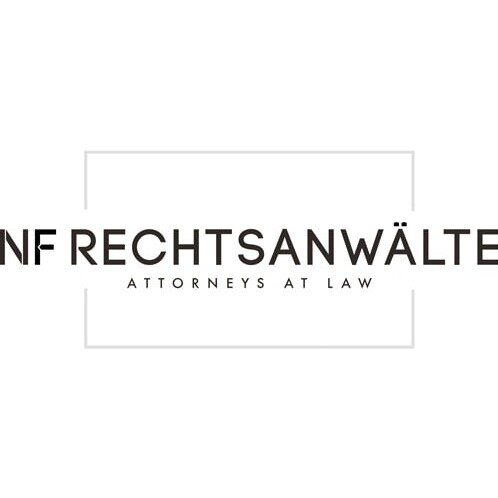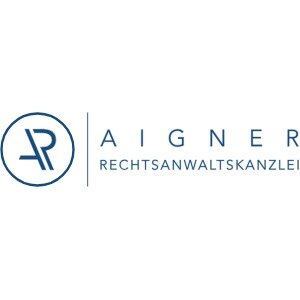Best Legal Document Lawyers in Austria
Share your needs with us, get contacted by law firms.
Free. Takes 2 min.
Or refine your search by selecting a city:
List of the best lawyers in Austria
About Legal Document Law in Austria
Legal document law in Austria governs the creation, execution, and enforcement of various legal documents that facilitate transactions and ensure legal compliance. These documents include contracts, wills, property deeds, and more. The Austrian legal system is based on civil law traditions, which means that it relies heavily on codified statutes and regulations. Proper legal documentation is essential for protecting individual and business rights and ensuring legal obligations are met.
Why You May Need a Lawyer
There are several situations where you may require legal assistance regarding legal documents in Austria. Such scenarios include:
- Drafting and reviewing contracts to ensure compliance with Austrian law.
- Assisting with the creation of a legally binding will or estate plan.
- Navigating property transfers or sales that require formal documentation.
- Understanding and adhering to business regulations through appropriate documentation.
- Litigation involving document disputes, such as breaches of contract.
- Handling legal paperwork for immigration or residency applications.
- Ensuring compliance with employment law through drafting employment contracts.
Local Laws Overview
Several key aspects of Austrian local laws are particularly relevant to legal documents:
- The Austrian Civil Code, which outlines the fundamental principles governing contracts and obligations.
- The Austrian Commercial Code, which addresses documentation requirements specific to commercial enterprises.
- Property law dictates the form and execution of deeds and transfers of ownership.
- Labor laws require specific employment documentation to comply with employer-employee agreements.
- Family law sets out requirements for legal documents related to marriage, divorce, and child custody.
- The notarial process, which is crucial for the legalization of various legal documents in Austria.
Frequently Asked Questions
What is a notary's role in Austria regarding legal documents?
A notary in Austria verifies, authenticates, and ensures the legality of various legal documents, including contracts, wills, and property deeds. Notarization is often required to validate documents for legal proceedings or registration purposes.
Are verbal agreements legally binding in Austria?
In Austria, verbal agreements can be legally binding, but they may be challenging to enforce without written evidence. It is advisable to document agreements in writing to avoid disputes and ensure all parties understand their obligations.
What essential elements must a contract in Austria contain?
A contract in Austria should include clear terms such as the identities of the parties involved, the subject matter, rights and duties, price, delivery conditions, and signatures of the parties to ensure it is valid and enforceable.
Can foreign individuals or companies use Austrian legal documents?
Yes, foreign individuals and companies can use Austrian legal documents, but they may need to comply with additional regulations and have them translated or notarized. Consulting a lawyer is crucial to ensure compliance with local laws.
How do I make my will legally binding in Austria?
To make a will legally binding in Austria, it must be written, signed, and dated by the testator. It is also advisable to have it notarized to prevent future disputes and ensure its acceptance in probate court.
What is required for registering property in Austria?
Registering property in Austria requires a notarized purchase agreement, proof of ownership, government fees, and submission of documents to the relevant land registry office.
Do employment contracts in Austria need to be in writing?
While not legally required, having employment contracts in writing is highly recommended to delineate duties, remuneration, and other terms clearly and avoid potential disputes.
How is a breach of contract handled in Austria?
A breach of contract in Austria can result in legal remedies, including compensation for damages, specific performance, or contract rescission. Legal action through the courts may be necessary to enforce these remedies.
Are electronic signatures recognized in Austria?
Yes, electronic signatures are recognized in Austria under the EU eIDAS Regulation, which gives them the same legal standing as handwritten signatures, provided they meet the set criteria.
How can I ensure my legal documents are compliant with GDPR in Austria?
To ensure GDPR compliance in legal documents, include clauses related to data protection, inform data subjects of their rights, and ensure data processing agreements are reviewed by a legal expert familiar with GDPR requirements.
Additional Resources
Here are some resources that may be helpful for someone in need of legal advice concerning legal documents in Austria:
- The Austrian Bar Association provides guidance on finding a qualified lawyer specializing in legal documents.
- The Notarial Chamber of Austria offers information on the notarial services available and how they can assist in legal processes.
- The Federal Ministry of Justice in Austria provides legal texts and resources for understanding Austria's legal framework.
Next Steps
If you need legal assistance with legal documents in Austria, consider the following steps:
- Identify the specific legal issue or type of document you need help with.
- Consult a qualified lawyer or legal expert specializing in your area of concern.
- Gather all relevant information and documents to facilitate your lawyer's assessment and guidance.
- Ensure clear communication with your legal advisor to understand your rights and obligations.
- Follow through on legal advice to ensure compliance with Austrian law and safeguard your interests.
Lawzana helps you find the best lawyers and law firms in Austria through a curated and pre-screened list of qualified legal professionals. Our platform offers rankings and detailed profiles of attorneys and law firms, allowing you to compare based on practice areas, including Legal Document, experience, and client feedback.
Each profile includes a description of the firm's areas of practice, client reviews, team members and partners, year of establishment, spoken languages, office locations, contact information, social media presence, and any published articles or resources. Most firms on our platform speak English and are experienced in both local and international legal matters.
Get a quote from top-rated law firms in Austria — quickly, securely, and without unnecessary hassle.
Disclaimer:
The information provided on this page is for general informational purposes only and does not constitute legal advice. While we strive to ensure the accuracy and relevance of the content, legal information may change over time, and interpretations of the law can vary. You should always consult with a qualified legal professional for advice specific to your situation.
We disclaim all liability for actions taken or not taken based on the content of this page. If you believe any information is incorrect or outdated, please contact us, and we will review and update it where appropriate.
Browse legal document law firms by city in Austria
Refine your search by selecting a city.














